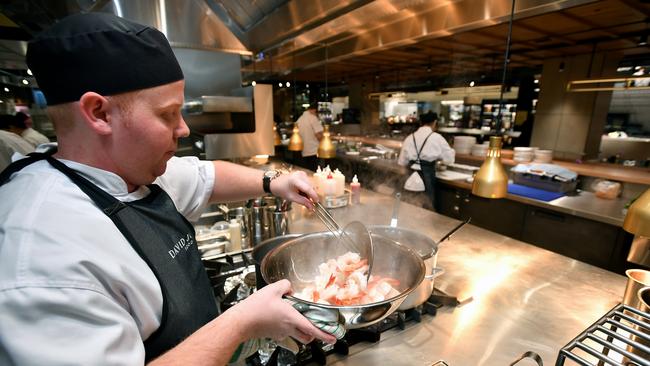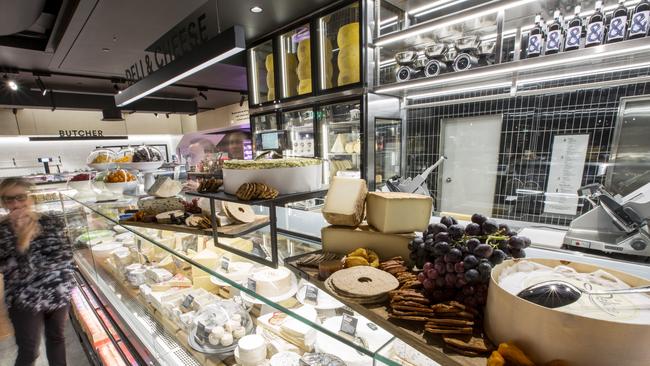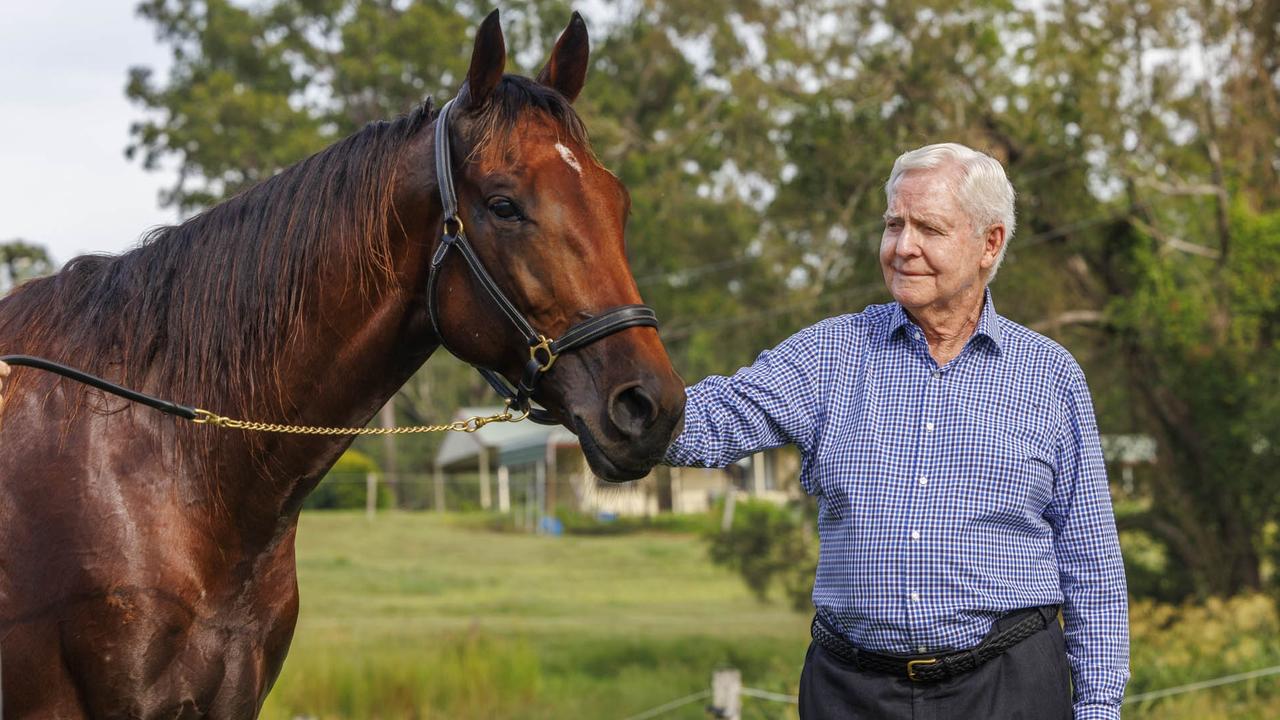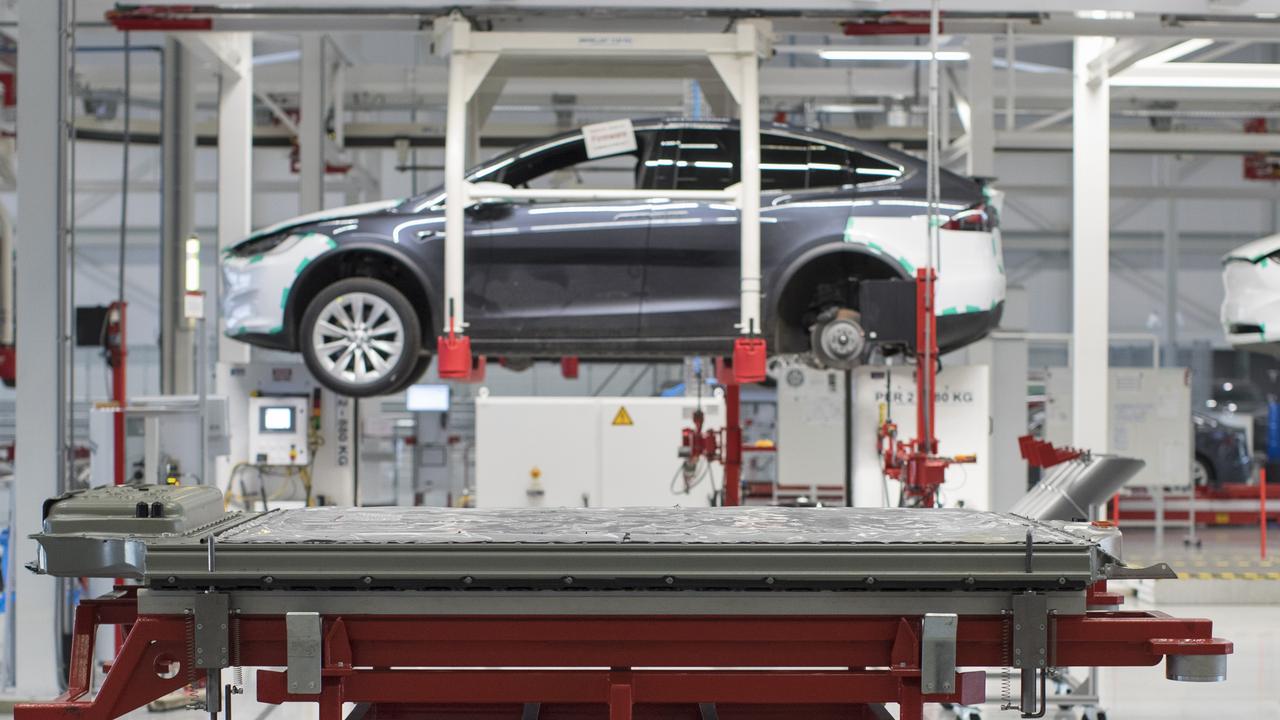Woolworths Holdings CEO says its David Jones food strategy doomed from the start
The boss of Woolworths Holdings, the owner of David Jones, has given a damning assessment of the upmarket retailer’s disastrous foray into food halls.

Business
Don't miss out on the headlines from Business. Followed categories will be added to My News.
The boss of Woolworths Holdings, the South African owner of David Jones, has given a damning assessment of the upmarket retailer’s disastrous foray into food halls, branding it flawed from the outset and a “cut and paste” job from South Africa that didn’t work in Australia.
Meanwhile, as its Country Road Group faces possible disruptions to global supply chains, he says it has acted to pull forward the early delivery of fashion and apparel for July and August to stay one step ahead of shipping delays.
India, a major source of textiles and ravaged by the latest wave of Covid-19 infections, supplies about 6 per cent of goods for the South African retail group and could be an issue.
Speaking to South African investors in a conference call, Woolworths Holdings chief executive Roy Bagattini revealed that the David Jones food halls in Melbourne and a joint venture with BP service stations would be closed down.
He said they were running at losses of $15 million a year and could not continue.
David Jones would be forced to book material impairments and writedowns in relation to the three food halls in Melbourne and 35 co-located petrol station/David Jones food offers, he said.
Mr Bagattini pledged to clamp down on costs, improve the fashion offer at David Jones and its Country Road Group, and restore flagging profit margins.
Mr Bagattini took questions from South African investors on its strategy in Australia, with the chief executive also disclosing that David Jones had been set an initial target to reduce its floorspace by 20 per cent in the next five years, but this target would be hit within two years.
South African shareholders sought more information about the Australian department store’s push into food through the opening of majestic but expensive food halls in Melbourne and Sydney, and Mr Bagattini, who was appointed chief executive this year, did not hold back on the faulty strategy.
“Being very candid, our strategy for food with David Jones in Australia was unfortunately fairly flawed from the outset and a cut and paste from SA (South Africa) was never going to really be the solution there,” he told investors.
“We went about doing things in a way which we have seen the consequences of here.”
In 2020 its food operations lost as much as $20 million.
Mr Bagattini said the commitment was that whatever David Jones did in food would not detract from the profitability of the broader department store business and would ultimately become a profit contributor.
But it didn’t mean an end to David Jones selling food.
“I don’t think we will be out of foods in every sense of the word, but we are going to be doing it very differently and we are going to play the game in a way that allows us for food to be accretive,” he said. “It is likely to be more on a concession basis and really from a David Jones perspective be probably more in the longer lifelike categories.
“I wouldn’t say it is an end to DJs food, certainly a shift in what the ultimate proposition would look like.”

In March David Jones announced the closure of two stand-alone David Jones food stores in Melbourne after only a few years of the strategy being launched, with food halls in Bondi Junction and the Sydney CBD still operating. David Jones is also closing down its BP co-located food stores and will focus more online.
Woolworths Holdings finance director Rezza Isaacs told investors that David Jones would book “material” impairments and write-offs this financial year as it closes down the food business.
Turning to the wider David Jones business, Mr Bagattini said the first phase of its recovery had been implemented with the reduction of debt, partly through the sale of David Jones stores, and restructuring its debt and covenant obligations.
Now it was time for David Jones to pivot to its income and operations to revive the up-market department store’s profitability, which had been slipping for some years, Mr Bagattini said.
“It’s partly around initiatives to ensure the relevance of David Jones proposition within the context of the Australian shopping ecosystem, and the team have several initiatives around that, but in addition to that we are focusing on the way we trade that business,” he said.
“Our historical margins have been declining for some time and we are looking at stabilising that and beginning to turn that, and part of that is really informed by a much tighter and appropriately informed merchandising strategy.
“Again getting really crystal clear on who the customer is and what the proposition is that we are bringing to them, the appropriate mix of brands and appropriate price points across that marketplace.”
Costs would need to be taken out of the business – with David Jones on target to remove $20 million of costs – while it negotiated rents with landlords as the department store also sped up the reduction of its floor space.
“Forty-eight stores is way too ‘over stored’ for the size of the market in Australia and for the business that we have, and moving and getting out of space is a very important strategy, the bigger strategy is driving down occupancy costs and for us space is one component of that,” Mr Bagattini said. “We had a 20 per cent space reduction target over a five-year period, we have accelerated that to getting it accomplished within the next two years. We remain on track to make that happen.”
This could also mean David Jones using less space within a store and renegotiating leases with landlords with the goal of reducing occupancy costs from “mid teens” to “high single digit”, he said.
To cope with supply chain constraints caused by Covid-19, the Country Road Group, which owns Country Road, Trenery, Witchery, Mimco and Politix, had pulled seasonal orders in early.
Mr Isaacs said: “We have pulled forward some July and August ranges to mitigate some shipping delays in Country Road.
“Given the Covid-19 crisis in India, Indian suppliers have been requested to ship ready-made products.”
Originally published as Woolworths Holdings CEO says its David Jones food strategy doomed from the start





